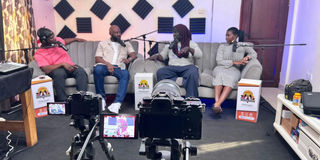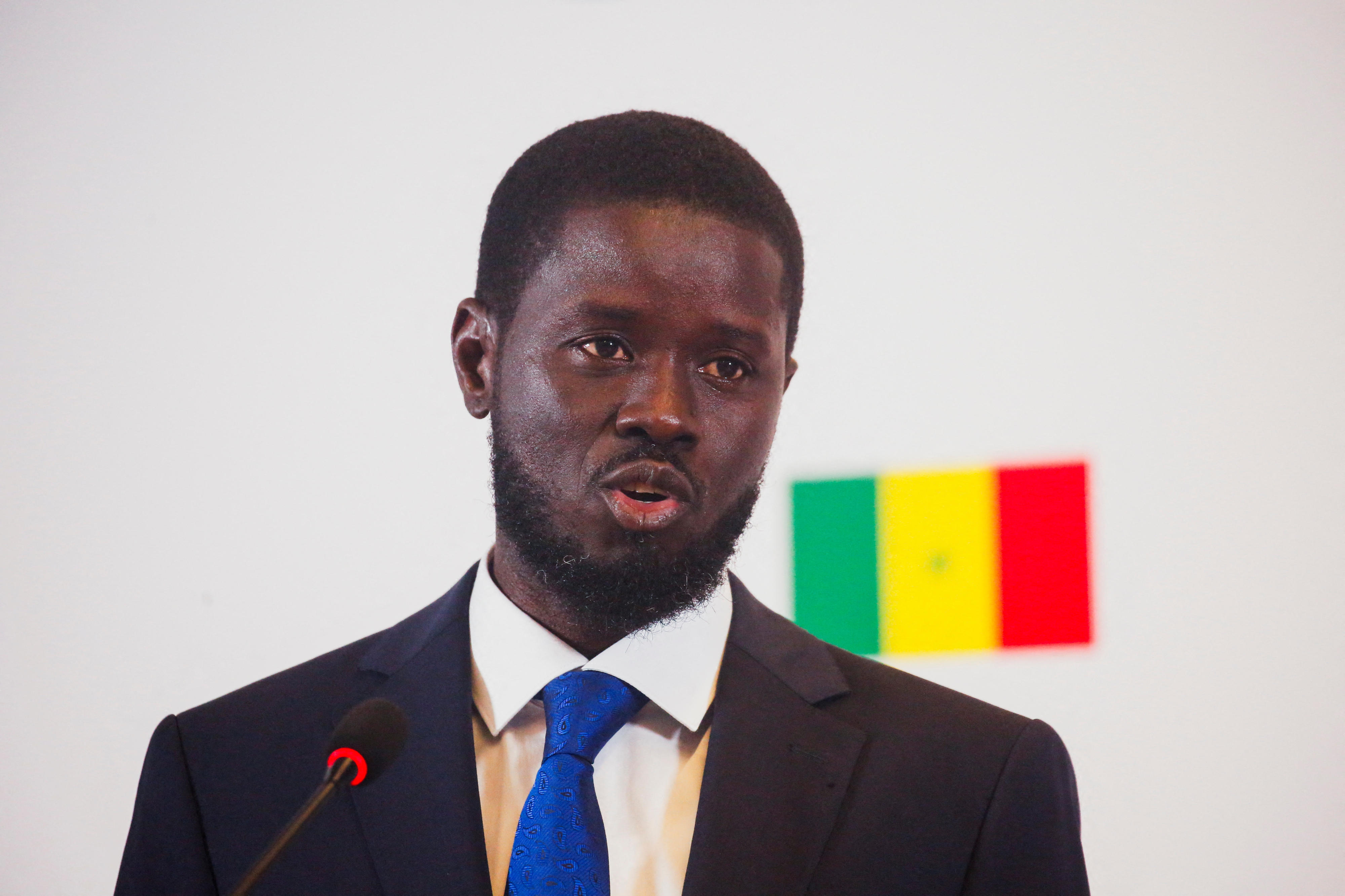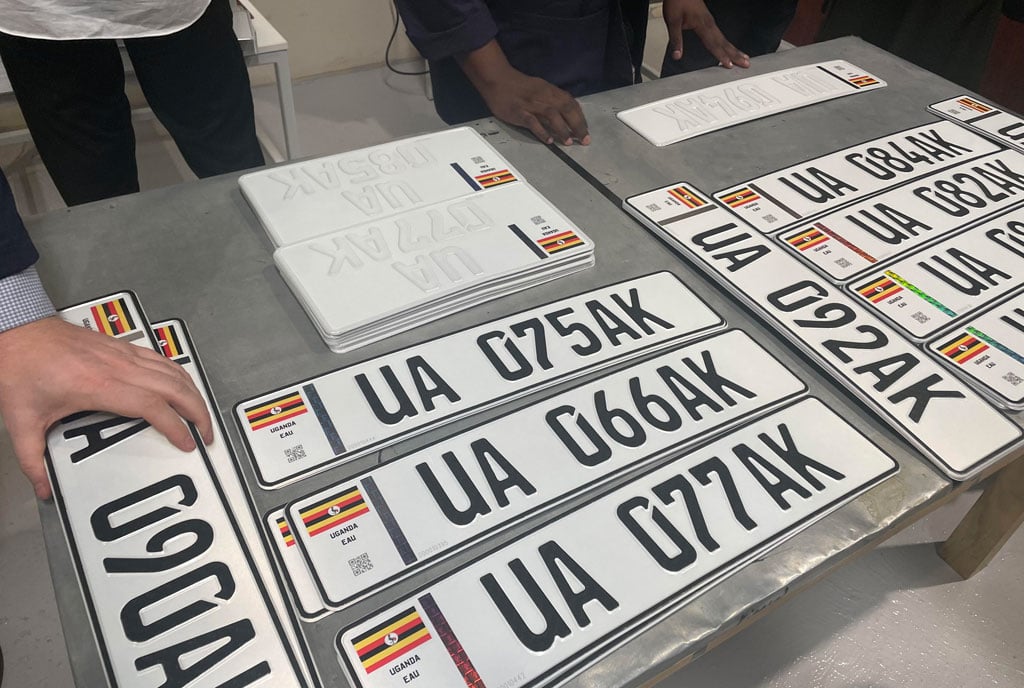Prime
Inside the fast-growing podcast culture in Uganda

What you need to know:
Mic check: The pandemic allowed the world to stop and reset. Internet usage went up and with it, its services such as streaming. The world started paying attention to podcasts than before. Bash Fahad Mutumba, digs into the podcast culture is picking steam in Uganda as well.
With a captivating personality and passion for storytelling, Joanita Maaya hosts the renowned Repat Podcast on Kenganda, a popular YouTube channel with at least 75,000 subscribers. Through her podcast, she shares compelling narratives that shed light on the experiences of the diaspora and their journey back to their roots. Her interviews are insightful, thought-provoking, and inspire a sense of cultural pride and identity.
She believes a podcast is like your favorite radio show, but on the internet, and you can listen to it whenever you want. It is like having a bunch of audio stories or discussions on various topics, all neatly organized into episodes. She says a good podcast is all about keeping you hooked. It must have interesting and useful content that you cannot get enough of. Plus, the sound quality should be crystal clear, so that you are not straining your ears to listen.
“Most importantly, it is about the connection between the host and the listeners. Being real, genuine, and making you feel like you are part of the conversation.” She adds.
Joanita says, before you start a podcast, you must have a great idea and a clear plan for what it will be about. Then, get your hands on a decent microphone, a comfortable pair of headphones, and a computer with software to record and edit your episodes.
“Do not forget a hosting platform to store and share your podcast with the world! Personally we use YouTube and Spotify.”
Her podcast is all about sharing the experiences of people who have moved back to their home country after living abroad and those planning to come back to the motherland. She dives into their stories, challenges, and the things they have achieved before and after repatriation.
“True crime, self-help, and all things related to tech and business seem to be pretty popular across the podcast world. But you know what? I love the niche I am in. It might not have millions of listeners, but it is so rewarding to connect with people who share similar experiences, and help them through their repatriation journey.”
She adds that finding awesome guests can be a mix of research and networking plus referrals. Joanita spends time searching for individuals with interesting repatriation stories or expertise, and sometimes her guests refer other people they think would be a great fit. Her podcast is the very one that blessed the internet with the viral clip in which a guest argued that, Ugandans have normalized institutionalized begging in the name of wedding meetings to organize functions they themselves cannot afford. He argued that one should not get married if they cannot afford to pay for their own wedding.
“Podcasts are steadily gaining more love and attention in Uganda! It might not be as huge as other media yet, but people are starting to appreciate the diverse range of podcasts out there, she says.”
Does it pay?
The creator says podcasts themselves do not pay directly, but there are cool ways to make some money from them, like having sponsored segments where companies pay to advertise on your show, setting up crowdfunding to get support from listeners, and selling merchandise to your fans. You can also organize live shows for your listeners.
Her biggest challenge is the tough competition, especially in popular genres. Also, growing an audience and keeping it engaged requires consistent effort. But staying true to your niche, interacting with your listeners, and producing top-notch content can help you stand out and build a loyal following.
“Find a topic you are passionate about, that resonates with your audience. Be authentic, engage with your listeners, and remember, it takes time to grow, so stay committed. And most importantly, have fun with it - podcasting is all about sharing stories and connecting with people!”
Mark Keron Wamala, the creator of Big Conversations With Ordinary People says initially, podcasts were recorded audio that was broadcast over the internet. The term has not only expanded to include video but it is also used to describe live streaming over the internet.
“Most but not all podcasts are conversations between two or more people on a specific topic. Some are a one-person monologue. Some are readouts. There are so many versions of podcasts that it is almost impossible to describe them all.”
He says what makes a good podcast is not any different from what makes a good art piece.
“Wamala says Big Conversations and Ordinary People podcast is a portrait of the guest through conversation. The goal is to invite ordinary people and give them the opportunity to share their perspective of the world with the world. The aim is to explore the guest’s field of interest through conversation. He tackles a wide range of topics; sex, current affairs and entertainment, politics, religion, spirituality and philosophy, and sports. The topic discussed depends on the guest, but they have episodes where they explore each of the topics. From his numbers, Wamala says religion, sex, and current affairs episodes get more traction than others. About the way they get guests, some reach out to them, but they also intentionally find people they think are interesting and invite them. They mostly reach out to people within their social circles.
Internet
Wamala notes that there are limitations in the country that are mostly infrastructure related.
“Most podcasts are over an hour long. To most, this translates to costly internet. What we have done is share clips of each episode separately on various social media platforms and we have seen these perform better than full episodes in terms of views. People consume the podcast mostly through TikTok, but we get the most engagement on Twitter.”
A lawyer by profession, Nabuguzi Kiwanuka creates a rather sophisticated podcast called Hash Time with Nabuguzi. She says the medium is like a radio show whose listeners can tune in at their time of convenience. According to her, a combination of various things including but not limited to; compelling content, a clear focus and format, a relatable host, great audio quality, authenticity and consistency make a good podcast. She says commitment and conviction, is all one needs to start a successful one.
“I focus on emotional and mental well-being Vis a Vis self-development content. Every topic has its audience but true crime podcasts take quite a huge number of listens.”
“My focal topic is one that affects everyone at their different stages in life but a mix of research, networking and relationship building. I once found myself blinking back tears when the guest spoke about something I had once experienced. My most trending episode is the one in which Alan Kasujja mentioned my name.” She says.
Nabuguzi believes Uganda is just getting the hang of what podcasts are.
“When I had just started out, I had so many people asking me what a podcast is. For my first years of podcasting, USA topped all countries. It must be towards the close of 2021 when Uganda finally took the lead on my analytics. I think the stats would be wilder if Uganda’s internet prices and connection were reasonable for every holder of a smartphone. I cannot speak for every podcast but Apple podcast users take the lead on my stats, followed by Google podcasts then Castbox, among others.”
“Some platforms make it easier for podcasters to make money but not in Africa. It requires an African to take a totally different route without solely depending on the hosting platform. Sponsorships, ads, merchandise sales and donations are the commonest ways to earn.”
Ahumuza Melvin Denning of The Mob Jazz Podcast says what makes a good podcast is a good team, good equipment and consistency.
“Some podcasts are scripted and some are not. So at the very least you should have clarity of genre. Of course you need a means to produce the podcast, so either a hired studio or basic equipment and an editor.”
“I would not describe The Mob Jazz Podcast as ‘focused’. Just like the name suggests, we discuss a variety of topics on every episode hence ‘Mob Jazz’. We like to say that our perspectives oscillate between ignorance and intelligence. But because the style of our podcast is conversational, we find it best to discuss topics of interest to us as opposed to what we think people want to hear us talking about. We find that it makes it more enjoyable for us to record and stay consistent. But since we record on a weekly basis, the topics are also often influenced by whatever the trending topic is that week as well as what is going on in our respective lives.” He says.
He adds that when it comes to podcasts people respond best to authenticity. If you are passionate enough about a particular topic or are effective enough in expressing your opinions on a range of topics there will be people that appreciate it.
“We try not to lean into what people want to hear us discuss and focus on what we want to do. Of course there is a temptation to be messy and controversial because that gets a lot of attention but then you have to do crazier things to keep that attention. That said, controversy sells, but only if the audience believes you.”
Production
Many YouTube tutorials make audio content creation seem simple, some will tell you that all you need is a phone. However, a lot goes into producing a quality podcast, with a number of good microphones, sound proofing and in case of video, lighting, production design and camera quality all involved.
“The truth is podcast equipment is expensive. Because it is an audio program it’s crucial that the sound is good and that can be a bit pricey. But there are are thousands of YouTube videos on the best equipment to get on a budget. There are a few creative hubs that have set up podcast studios like Nzou and Motiv that can provide fully stocked studios and even editors for podcasters that are just starting out,” Ahumuza says.
Like any other budding industry the cost of production is fairly high, the market is limited, and the support is limited.
As something grows, the initial meaning of it gradually changes to encompass a wider array of things. The word podcast is no longer synonymous with fully audio content, since what makes a podcast viral in the first place, is usually a video clip cut from it, making rounds on social media platforms like TikTok.
For that reason, most creators have their podcasts in video version on YouTube, on top of the audio.
Even though the line gets thinner and thinner, Fiona Kemi, one of the creators of The Unpopular Opinion, describes what she creates as video content.
According to her, what makes good content is the actual gist of it. People can always feel if what you are communicating is genuine. We wanted to talk about things that are a little bit taboo, things we could only talk about in our friend group that we felt other people must be talking about but are shying away from publicly. This is why people that receive our content connect to it in a genuine way.
“We are women in our 30s so for the most part, we impact people from the mid 20s to early 40s. We focus on honest conversations that show them that they are not alone in whatever issue they are handling, be it dating or finance. We also want to educate and empower; whether we are bringing on a guest who is an expert in a certain field, or providing information that can help the people we reach. Education, entertainment and empowerment are key for us. A holistic, 360 type of approach to content.”
“Content in music and comedy is what sells most in Uganda, but that is not what we make. It is not organic to who we are. Our own is a judgement-free space, where we can disagree but still have a conversation in which we can learn from each other. The guests we choose to host depend on the topic we are discussing. If it is a technical topic, then we reach out to a technical person; but if it is conversational, we reach out to two diverse individuals who can give different points of view.” She adds.
Unpopular opinion is known for some outladdish views and a number of times, they have gone viral.
“Our ‘She’s not that into you’ episode’ was the most viral. The internet is wild because the part that went viral was a little clip from the video that talked about Banyankore men and how they propose. To date, we meet people that associate us to that. But outside trending, the most memorable episodes are the ones with which we get feedback from people about how much they felt personally touched by the content. Where the people feel represented, seen and heard.”
The future
“As a country, we are consuming content differently from how we did a decade ago, and it speaks to growth. We see ourselves and our content on an upward trajectory in terms of getting appreciated. We are the lowest hanging fruit, and if our fellow Ugandans can consume our content, then that is awesome. We can be better and better in other countries.”
She and her friends however face some challenges while creating,
“It has been difficult to get brands to understand the value of working with a content creators. Specifically regarding what we bring to the table as opposed to say a TV advert or a billboard,” she says.
Kemi believes content creators provide visibility in a way different from that of traditional media, “Even if I had 100 followers, these people trust that whatever I share. There is a lot of value for brand partnerships. It is a young industry, so we need to keep teaching brands about what we bring to the table.”
As women, she says they have found that there are some doors that do not open for easily. She says they have witnessed time and again, that there are some doors that can only open if a man goes in first and introduces them.
“It is a real difficulty that women are facing in the arts in general.”
Kemi and their channel a story of inspiration, for instance, they started with only a camera and a ring light.
“Lately, you can even start with less. Just a good phone, a mic and a ring light can get you up and running. You do not need to have an entire setup to begin creating. Just start! Consistency is the way you can overcome most challenges,” she says.
Unlike other markets such as Kenya where content creation is on a different level from, consumers, brand partnership and endorsements, in Uganda it is still a labour of love. Podcasting, is yet to match influencing as a digital cash cow, but as many wait for that day, they are still learning and organizing.
Kemi says at the moment, it is important to learn from each other.
“Find like-minded people who are doing similar things and collaborate with them. That is how you can cross-market and also learn from each other. It also helps us to have unified voices on issues that affect us. Do not be ashamed of messaging someone doing something you love.”




